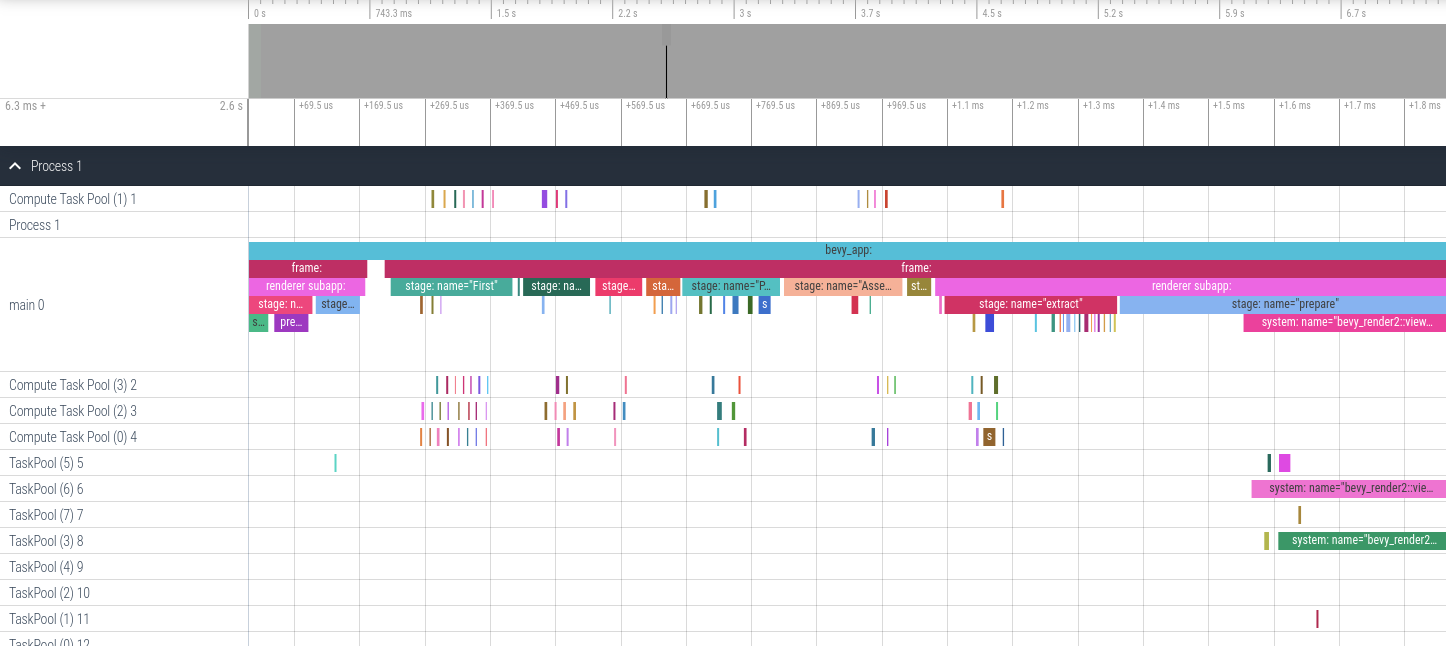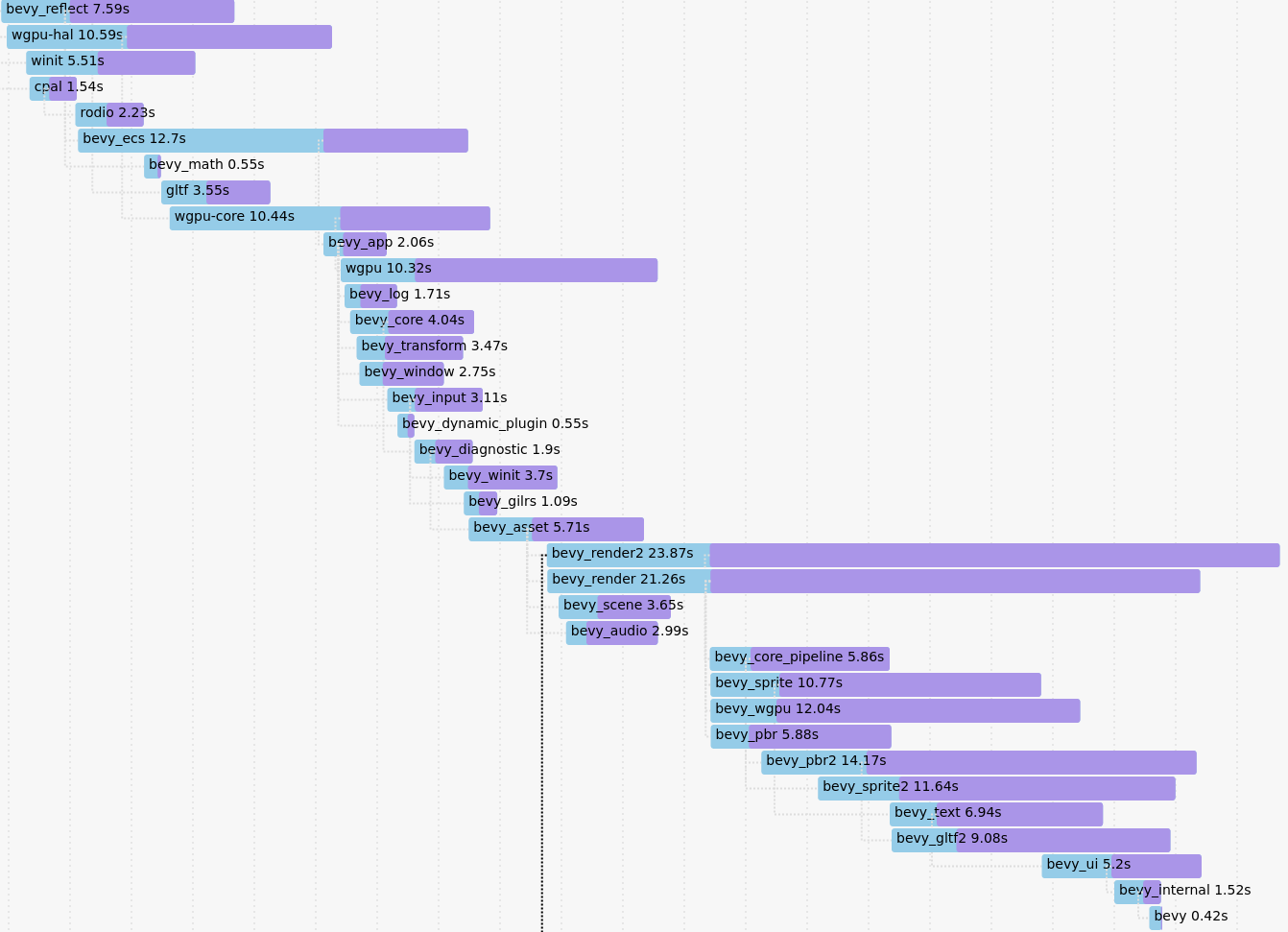I just updated profiling.md (and accidentally skipped the pr process by not checking "create new branch" in the github ui). The markdown wasn't properly formatted, which broke the build.
3.0 KiB
Profiling
Runtime Flame Graph: tracing spans
Bevy has built-in tracing spans to make it cheap and easy to profile Bevy ECS systems, render logic, engine iternals, and user app code. Enable the trace cargo feature to enable Bevy's built-in spans. You also need to select a tracing backend using the following cargo features:
Backend: trace_chrome
cargo run --release --features trace,trace_chrome
After running your app a json file in the "chrome tracing format" will be produced. You can open this file in your browser using https://ui.perfetto.dev. It will look something like this (make sure you expand Process 1):
Adding your own spans
Add spans to your app like this (these are in bevy::prelude::* and bevy::log::*, just like the normal logging macros).
let my_span = info_span!("span_name", name = "span_name");
{
// starts the span's timer
let guard = my_span.enter();
} // guard is dropped here ... this stops the timer
Search for info_span! in this repo for some real-world examples.
For more details, check out the tracing span docs.
perf Runtime Flame Graph
This approach requires no extra instrumentation and shows finer-grained flame graphs of actual code call trees. This is useful when you want to identify the specific function of a "hot spot". The downside is that it has higher overhead, so your app will run slower than it normally does.
Install cargo-flamegraph, enable debug symbols in your release build, then run your app using one of the following commands. Note that cargo-flamegraph forwards arguments to cargo. You should treat the cargo-flamegraph command as a replacement for cargo run --release. The commands below include --example EXAMPLE_NAME to illustrate, but you can remove those arguments in favor of whatever you use to run your app:
- Graph-Like Flame Graph:
RUSTFLAGS='-C force-frame-pointers=y' cargo flamegraph -c "record -g" --example EXAMPLE_NAME - Flat-ish Flame Graph:
RUSTFLAGS='-C force-frame-pointers=y' cargo flamegraph --example EXAMPLE_NAME
After closing your app, an interactive svg file will be produced:

Project Compile Times
This requires nightly rust (rustup default nightly). Append -Ztimings to your app's cargo command (ex: cargo build -Ztimings). If you want a "full" profile, make sure you run cargo clean first. Open the produced cargo-timing.html file in your browser of choice. This will show how much time each crate in your app's dependency tree took to build.

